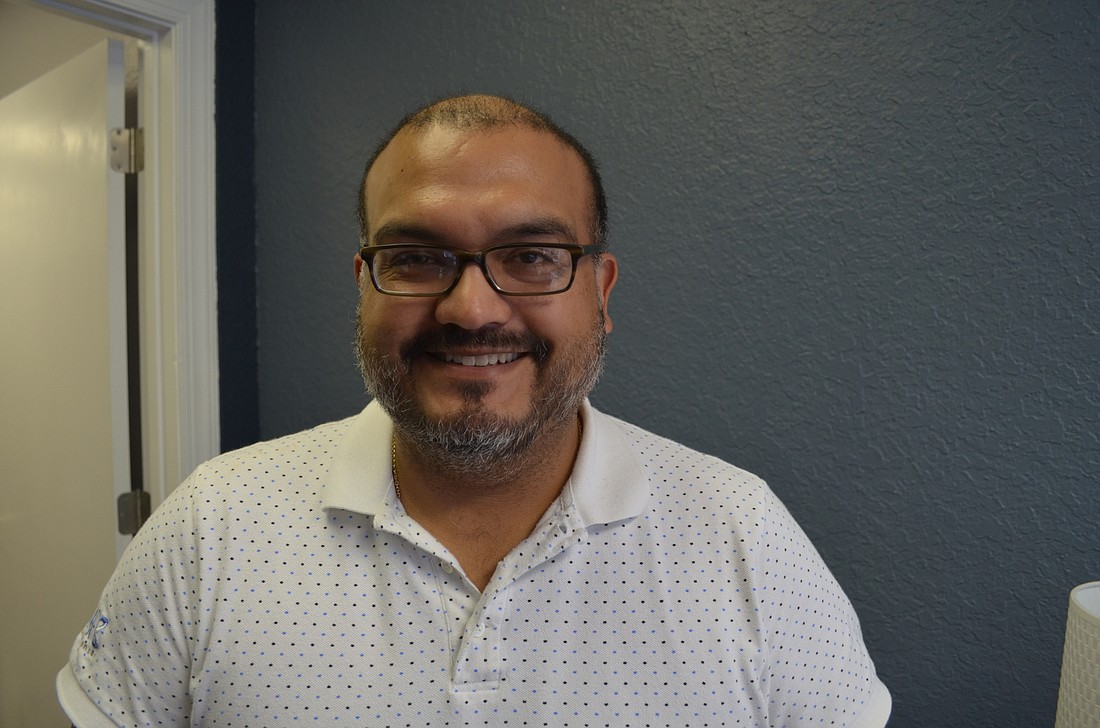- April 24, 2024
-
-
Loading

Loading

To get a sense of the criminal activity that is affecting his business on Second Street, all Fernando Vega has to do is sit at his desk and look out the window.
Vega, owner of Hydr8 IV Hydration Center, has a view into the parking lot at City Hall and the SCAT transfer station next door. If you sit there for a couple of hours, he says the issues become apparent: People on the street are engaged in drug dealing and use, prostitution, littering and other illicit behavior.
The problems became more pronounced just after he opened his business in 2015. Soon, he began to lose regular customers.
“They said, ‘We don’t feel safe,’” Vega said. “‘We can’t come back.’”
On Jan. 19, Vega and other businesses in the 1500 block of Second Street met to discuss the problem. Originally, the conversation centered on homelessness — the idea being that their troubles stemmed from large gatherings of homeless individuals nearby.
But over the course of the two-hour meeting, the group became convinced it needed to specifically target the illegal behavior.
Regardless of whether people have homes — and much of the troublesome activity can be ascribed to people who are housed — the businesses believe the problem was with the drug dealing and other crimes.
Ethan Frizzell, area commander of the Salvation Army, said this change in narrative has helped businesses and residents who have grappled with the same issues. He discouraged attempts to classify the homeless community into subcategories to identify the problematic element.
“There’s no great benefit to coming up with names for people who have behavior that’s not acceptable,” Frizzell said.
Instead, he said the businesses should band together to let local officials know their specific problems — and offer suggestions on how to address them.
Some initial ideas: The police could attempt to crack down on drug sales in the area, and the city could repave and relight the City Hall parking lot for enhanced surveillance.
Sarasota Police Capt. Kevin Stiff said law enforcement is aware of the issues. Stiff said the SPD uses a “SARA process”:
He said foot patrol officers and the Homeless Outreach Team are paying close attention to the area.
“We work on it on a daily basis, and it has decreased over the past few weeks,” Stiff said. “It hasn’t ceased, but these efforts will continue for the foreseeable future.”
Businesses are optimistic a new approach will help, but they didn’t want to understate the severity of their problems.
Joe McElmeel, CEO of Brooke Chase Associates, said it’s hard to retain tenants in the building at 1543 Second St.
“It’s been going on here for 15 years,” McElmeel said.
The Salvation Army used to be a similar hub for large gatherings that invited criminal behavior, but Frizzell worked with city and law enforcement officials to clear Central Avenue.
He said the business owners embracing a new philosophy is an important step toward achieving a similar change.
“Advocate for what you’re for, not for what you’re against,” Frizzell said.